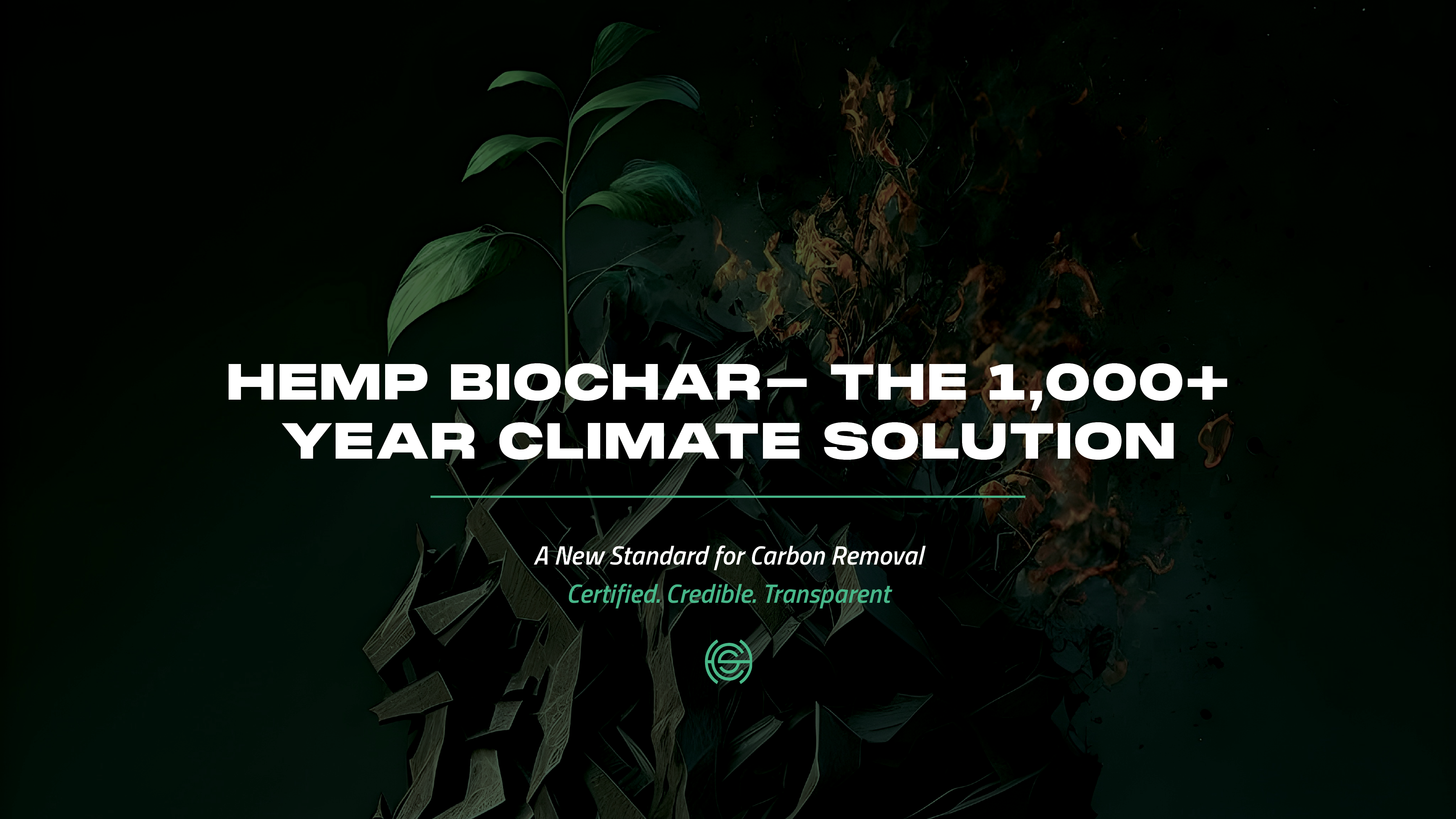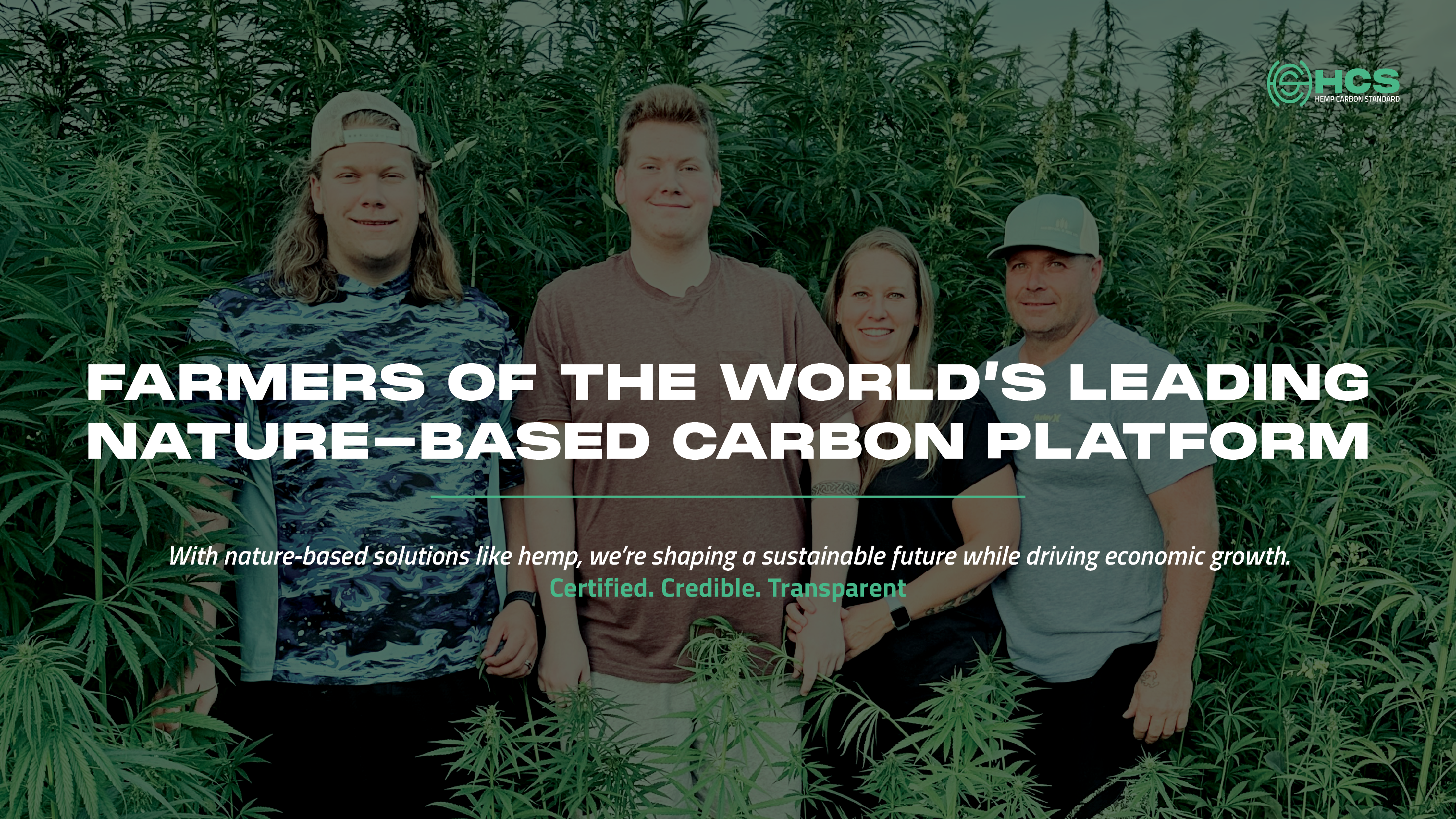The race against climate change requires groundbreaking innovation and collective action. The voluntary carbon market (VCM) is a powerful tool enabling organizations, individuals, and even governments to offset their emissions by financing projects that sequester carbon or prevent its release. But the current system has its challenges—complexity, cost barriers, and transparency issues—limiting its full potential.
At Hemp Carbon Standard (HCS), we believe industrial hemp offers a unique solution to these problems. By marrying hemp’s exceptional carbon-sequestration capabilities with transparent and cost-effective practices, we’re reshaping how the VCM operates.
This article explores the fundamentals of the voluntary carbon market, key challenges it faces, and how hemp-powered innovation can make carbon credits more accessible and impactful.
A Brief Overview of the Voluntary Carbon Market
The voluntary carbon market is an unregulated system where entities that aim to act on their carbon footprint can purchase carbon credits. Each credit represents one metric ton of CO2 removed from or prevented from entering the atmosphere.
How It Works
- Credits Are Generated: Projects like reforestation, renewable energy development, and sustainable regenerative farming techniques create carbon credits by eliminating or avoiding emissions.
- Credits Are Verified: To ensure the project’s credibility, verification bodies confirm that the claimed reductions are real, measurable, and longterm.
- Credits Are Traded: Buyers, typically companies looking to offset their emissions, purchase the credits, supporting the funding of these projects.
While the VCM has supported many successful initiatives, it struggles with certain hurdles that prevent it from reaching its full potential.
Challenges in the Current System
- Complex Verification: Proving the effectiveness of carbon-reduction projects often requires sophisticated monitoring systems, making entry daunting for smaller participants.
- High Costs: Smaller players, including smallholder farmers or grassroots projects, struggle with the financial burden involved in generating and navigating carbon credits.
- Transparency Issues: Some markets lack clarity on where funds go and how environmental benefits are quantified, raising concerns about accountability.
The need for improvement in these areas is clear, and innovative solutions could revolutionize how the VCM creates and delivers impact.
Why Hemp? Why Now?
Hemp has long been praised for its environmental benefits, but its potential as a powerful carbon-sequestration crop is only beginning to be realized. Unlike many other crops, industrial hemp not only removes CO2 but also regenerates the soil, making it an ideal candidate for nature-based carbon credits.
Hemp’s Unique Advantages
- Rapid Growth: Industrial hemp is one of the fastest-growing plants, capable of absorbing significant quantities of CO2 during its short growth cycle.
- Versatile Applications: Beyond its environmental benefits, hemp can be used to produce textiles, construction materials, biochar, and more, creating additional economic opportunities.
- Sustainability: Unlike some carbon-offset solutions, hemp farming leaves the land enriched, making it a regenerative approach to climate action.
At HCS, we leverage these benefits to create high-integrity, nature-based carbon removal credits that are both impactful and affordable, all while building trust and transparency into the process.
Tackling the VCM’s Key Pain Points
- Verification: By partnering with leading industry players, we’ve developed robust measurement tools and verification protocols that ensure every credit produced is backed by rigorous data.
- Affordability: By working directly with hemp farmers and removing unnecessary intermediaries, we’ve streamlined the process, reducing costs without compromising quality.
- Scalability: Thanks to a growing global network of farmers across six countries, we can support large-scale projects that deliver measurable impact.
Empowering Sustainable Practices Through Collaboration
One of the most exciting aspects of integrating hemp into the VCM is the opportunity for collaboration. At HCS, our objectives extend beyond merely generating carbon credits.
Supporting Farmers as Climate Heroes
We work hand-in-hand with farmers worldwide, empowering them to monetize the carbon-sequestration potential of their hemp crops. This partnership benefits everyone involved by:
- Increasing Economic Viability: Farmers gain a new revenue stream by selling credits derived from sustainable practices.
- Encouraging Climate-Positive Agriculture: The financial incentives motivate more farmers to adopt hemp farming and sustainable techniques.
- Advancing Rural Economies: Many hemp farms are located in rural or underserved areas, providing jobs and infrastructure support.
The alignment of economic and environmental incentives creates a win-win model—empowering farmers while amplifying global climate action.
A Vision for the Future
Hemp Carbon Standard aims to redefine what’s possible within the voluntary carbon market. Through innovation, transparency, and collaboration, we’re working toward an inclusive system where everyone from large corporations to small businesses and individual farmers can drive impactful change.
Building Accessibility and Scale
Our priority is making nature-based carbon credits available to everyone—businesses big or small—while maintaining the rigorous standards needed for tangible climate impact. By investing in scalable hemp-based solutions, we aim to make the VCM a broader, more inclusive environmental tool.
Driving Tangible Climate Impact
Our end goal is clear—reduce global emissions and contribute to the fight against climate change. With industrial hemp leading the charge, the possibilities are endless.
Our vision goes beyond today. We’re building a future where all industries collaborate to make meaningful contributions to sustainability, and scalable solutions like hemp farming become the norm rather than the exception.
Unlock Hemp’s Climate Potential for a Sustainable World
The voluntary carbon market holds immense promise for addressing today’s most pressing environmental challenges. However, realizing that promise requires innovation, accessibility, and above all, action.
At HCS, we’re proud to lead the charge by demonstrating how nature-based solutions like industrial hemp can transform the VCM and help the planet. Our approach isn’t just about creating credits; it’s about reshaping how organizations and individuals approach sustainable practices.
Explore how you can be part of this transformation with high-impact, verified hemp carbon credits. Together, we can make carbon markets more inclusive, transparent, and impactful.




